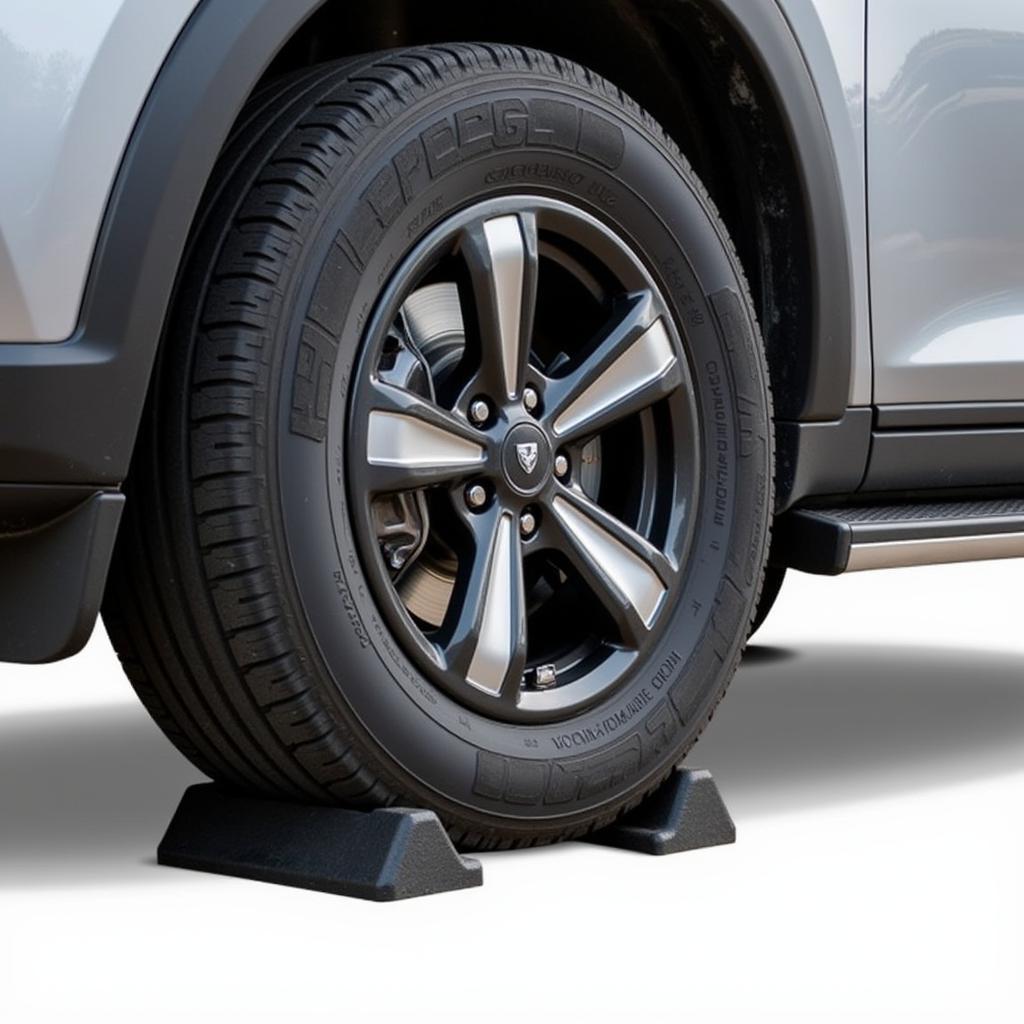Car radio static can be incredibly frustrating. Whether you’re on a long road trip or just trying to enjoy your daily commute, that persistent crackling and hissing can quickly ruin your listening experience. This guide will provide you with a comprehensive overview of the common causes of car radio static and how to fix them, so you can get back to enjoying crystal-clear audio.
Understanding the Causes of Static in Your Car Radio
Before we dive into solutions, it’s important to understand the potential culprits behind that annoying static. Car radio static isn’t just one problem; it can stem from several different sources. Identifying the root cause is the first step towards a permanent fix.
Common Sources of Car Radio Static
- Poor Grounding: A weak or loose ground connection is often the primary cause of car radio static. This can create a loop that picks up interference and translates it into static.
- Antenna Problems: A damaged, corroded, or poorly connected antenna can struggle to receive a clear signal, leading to static.
- Wiring Issues: Damaged or exposed wiring in your car’s electrical system can act as an antenna, attracting interference and causing static.
- Alternator Noise: Sometimes, the alternator, responsible for charging your car’s battery, can generate electrical noise that interferes with the radio signal.
- Nearby Electronics: Other electronic devices in your car or nearby can also contribute to radio static. This can include cell phones, GPS devices, and even other vehicles’ electronics.
- Environmental Factors: In some cases, environmental factors like power lines, radio towers, and even atmospheric conditions can cause radio interference.
Troubleshooting and Fixing Car Radio Static
Now that we’ve identified the potential causes, let’s explore the solutions to Fix Car Radio Static.
Checking the Ground Connection: Your First Step
Start by checking the ground connection of your car radio. This is often the easiest fix. Make sure the ground wire is securely attached to a clean, unpainted metal surface on the car’s chassis. A loose or corroded connection can be easily tightened or cleaned to resolve the static.
Inspecting the Antenna: Ensuring a Strong Signal
The next step is to inspect your car antenna. Check for any visible damage, such as bends or breaks. Also, ensure the antenna cable is securely connected to the back of the radio. A corroded or loose connection can significantly impact signal quality. If the antenna itself is damaged, it’s usually a simple and affordable replacement.
Examining the Wiring: A Deeper Dive
If the ground connection and antenna are fine, it’s time to inspect the wiring. Look for any frayed, damaged, or exposed wires in the area around the radio. These can act as unwanted antennas, attracting interference. Repairing or replacing damaged wiring can resolve the static issue.
Addressing Alternator Noise: A More Complex Issue
Alternator noise is a bit more complex to diagnose and fix. You can try using a noise filter designed specifically for car audio systems. This filter installs in line with the radio’s power cable and helps to suppress electrical noise from the alternator. If the noise persists, you might need to consult a qualified car audio technician.
Minimizing Interference from Other Electronics: Simple Adjustments
Sometimes, other electronics in your car can interfere with the radio signal. Try turning off any unnecessary devices, like your cell phone or GPS, to see if the static reduces. If you identify a particular device as the source of the interference, try relocating it further away from the radio.
Dealing with Environmental Factors: Adapting to the Surroundings
Environmental factors are often beyond your control. However, you can sometimes improve reception by slightly adjusting your car’s position or changing radio stations.
“A solid ground connection is absolutely crucial for clear car audio. It’s often the simplest fix but makes a world of difference.” – John Miller, Certified Automotive Electrician
Fix Car Radio Static: Conclusion
Fixing car radio static can range from simple checks to more complex troubleshooting. By systematically examining the potential causes outlined in this guide, you can pinpoint the source of the problem and implement the appropriate solution. Remember, a clear, static-free listening experience is just a few steps away. If you’re still experiencing issues, feel free to reach out to us at AutoTipPro for further assistance.
Contact us at +1 (641) 206-8880 or visit our office at 500 N St Mary’s St, San Antonio, TX 78205, United States.
FAQ: Common Questions about Car Radio Static
-
Why is my car radio only static on AM? AM radio is more susceptible to interference than FM. The problem might be the antenna, a poor ground, or even environmental factors.
-
How can I tell if my car radio’s ground is bad? A loose or corroded ground wire connection is usually the culprit. Check for visible corrosion or looseness where the ground wire connects to the car’s chassis.
-
Can a bad alternator cause car radio static? Yes, a failing alternator can generate electrical noise that interferes with the radio.
-
Does the type of car antenna affect static? Yes, a high-quality antenna designed for your car model will generally provide better reception and less static.
-
Can weather affect car radio reception? Certain atmospheric conditions can interfere with radio waves, leading to static.
-
What is the best way to fix static in my car radio? Start by checking the ground connection and antenna. If those are fine, inspect the wiring and consider a noise filter for alternator noise.
-
When should I consult a professional about car radio static? If you’ve tried the basic troubleshooting steps and the static persists, it’s best to consult a qualified car audio technician.





Leave a Reply